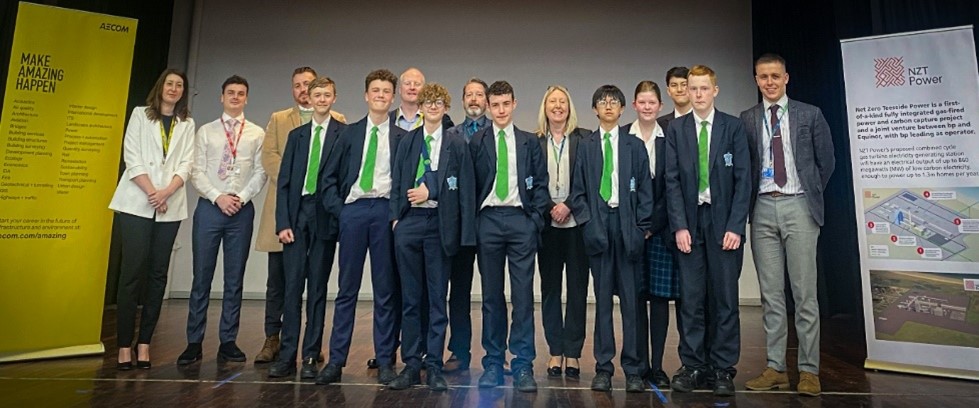People Spotlight: Meet Steve Hunt
Our People Spotlight series gives you an inside look at our technical experts around the world. This week, we are highlighting a director from our Buildings+Places (B+P) business line in the United Kingdom and providing you insight into their engineering inspiration and work.
Steve leads defence consulting delivering projects both in the UK and abroad. He is a chartered civil engineer who started out in the water sector before joining the British Army, serving 16 years in the Royal Engineers. Steve joined AECOM’s Project Management team in 2018 and works from Leeds.
Tell us about what inspired you to join the industry.
The opportunities and challenges that one can experience working in civil engineering was my initial draw to the industry. Early on and prior to joining the Army, I got to work on public health engineering projects in Indonesia studying a waterborne disease and then in Malaysia on a project to improve drinking water quality. I absolutely loved this work and it confirmed my initial impression of what the industry had to offer. This was followed by 16 years in the British Army as a military engineer. The projects I worked on were varied, challenging and took me all over the world.
In the military, the opportunity to work on post-conflict stabilisation projects were the most rewarding. This often required close liaison with the local community leaders, partnering nations and NGOs to help deliver roads, schools, hospitals and irrigation works key to the social cohesion. To date, my career has offered a rich variety of life experience which spans from building complexes in equatorial Africa, to air strips in Arctic Norway as well as bridges in Middlesbrough and Water Treatment Plants in Newcastle Upon-Tyne – long may this continue!
What is your favorite AECOM project that you’ve worked on and why?
Since 2019, we have been delivering a UK government funded project in Jordan incorporating delivering training facilities at multiple sites across the country. AECOM has delivered the project management, design and construction supervision services from concept through to handover. The goal was the security and stabilisation of a region impacted by multiple conflicts. The people and the culture of this country are fantastic and the place is well worth a visit. Most satisfying is that the team we built at the start of the journey has remained intact throughout, while continuing to grow, and has thrived on the challenges presented.
We have seen the project evolve from concept to the stage where some of the facilities are now in use. We have developed firm partnerships with AECOM colleagues based in the region, the client and the supply chain, and which has been built on mutual trust and commitment to delivering the client’s vision. My most memorable project moment was after a hectic week of work visiting sites all around the country, we had an opportunity to relax with an evening swim in the Dead Sea – remember not to drink the water!
Tell us a story of how your work positively impacted the community.
AECOM’s social value days have allowed me to volunteer as a local enterprise adviser (LEA) at a secondary school in the Teesside area, which is a region targeted for economic regeneration. I have been in the role since 2018 and it involves supporting the school by providing insights into our industry, potential careers, as well as supporting wider STEM initiatives.
Last year, my colleagues helped me to mentor a team from the school in a STEM competition with a ‘Levelling-Up’ theme. We worked with the children on developing the concept for a green leisure facility on the River Tees. After six months and three competition rounds, they won. We subsequently arranged for the team to pitch the idea to their local politician, the Rt Hon Matt Vickers, at the Houses of Parliament, followed by delivering their award-winning presentation to an audience at Aldgate Tower – a memorable day for all involved. If you get the chance to be an LEA, do so.
Share a piece of career advice.
You can often give yourself lots of reasons not to take an opportunity like getting that next qualification, working on a challenging project or getting involved in a wider work-related social or sporting activity. Invert the problem, look for reasons why you should, and you rarely regret it.









